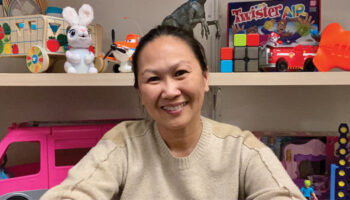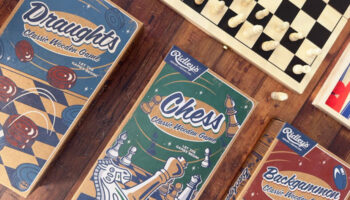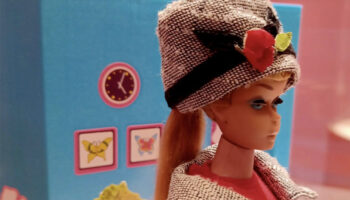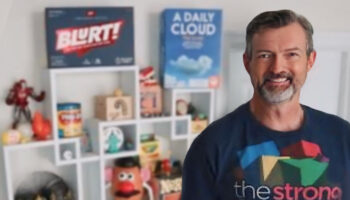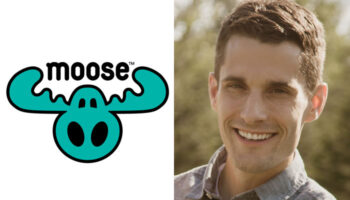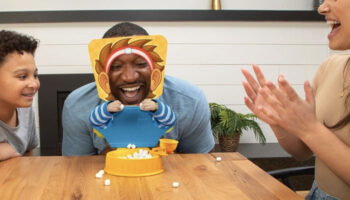Three simple (but not obvious) tips on playtesting
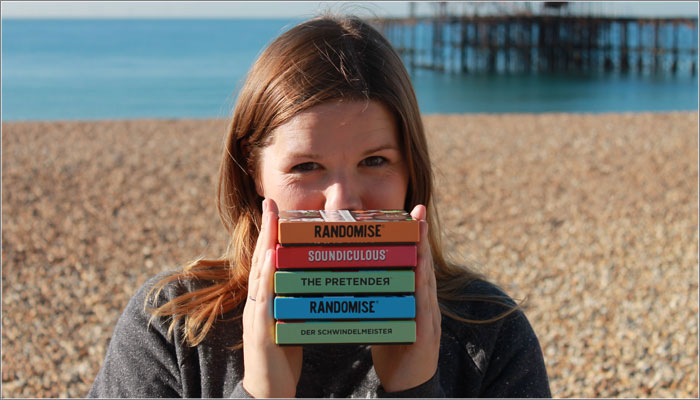
Whenever anyone with an idea for a game asks me for advice about how to turn it into a really great product, my response is always the same – playtest, playtest, playtest!
However good an idea is, playtesting it well can always make it better, and that’s why playtesting is at the core of new game development at Gamely.
When I came up with my first game idea five years ago, I had absolutely no idea how to playtest well, and I’ve discovered so much along the way.
Below are my top three tips and while they are simple, I don’t think they are always obvious to new designers. And I’m absolutely still learning too – so please do share your playtesting tips in the comments!
1. Encourage negative feedback.
You’ve created something. You might be feeling a bit nervous about sharing it and putting yourself out there. That’s totally normal!
When I started Gamely, my confidence was low after leaving a difficult job situation, so when I started playtesting my first game – Randomise – I was desperate for some encouragement and kind words. Positive feedback is lovely to hear and important for building up your confidence, but actually, it was the negative feedback that helped me improve my game.
If you want your game to be the best it can be, it’s crucial to seek out negative feedback – this is gold dust. At Gamely we now ask more questions about what’s wrong with a game than what’s right with it, and we explicitly tell testers we want them to be as brutally honest and harsh as possible.
We’ve also introduced a new question suggested by Mojo Nation’s own Deej Johnson and Billy Langsworthy in their soon-to-be-launching brilliant book ‘The Snakes and Ladders of Creative Thinking’: If you had to give this product a one star review on Amazon, what would you write?
Just this week we received a scathing (and hilarious) one star review from a playtester. They actually liked our game overall, but the one star review highlighted several areas for improvement that will make the game immeasurably better.
2. Choose your testers carefully
Any playtesting is good, and friends and family are a great starting point (particularly for the encouragement I mentioned above), but be wary – they love you too much!
The closer the person testing the game is to you, the more likely they are to love anything you create (however good it is) and the less likely they are to give you negative feedback (the real gold dust).
Once you are confident that your basic game mechanics work, try and find friends of friends or people who share your interests online, with less of a personal relationship to you, who will give you the really honest, constructive feedback you need.
3. Don’t get too attached to specifics
You’ve believed in your game idea enough to put it out there, and that’s great! But you need to be ready to adapt your idea according to feedback.
One of the reasons that our first game – Randomise – is popular is because of its variety and hilarious combinations of different things you might need to act, draw or describe (ever seen a confused badger playing the drums?!). But originally, Randomise was themed around guessing things from the seaside. It turns out that just pretending to be a shell isn’t that fun!
The first prototype of our game Soundiculous involved everyone sitting around with their eyes closed for so long they felt ‘sleepy’, ‘disorientated’ and ‘queasy’! Not the effect we were going for!
Sometimes feedback can be painful, but if you can ensure you don’t get too attached to specifics of an idea, you can really be free to make a game the best it can be.
None of this advice is ground breaking, but doing playtesting well can be the difference between vanilla feedback that offers nothing or, even worse, praise for a game that isn’t very good.
We’ll keep testing and learning and I hope in years to come we’ll get even better at playtesting.
To help towards this, please do let me know what lessons you’ve learned about playtesting in the comments below – I’d love to learn from you!
Wishing you happy (and hopefully not too painful) playtesting!
Hazel Reynolds is founder and CEO of Gamely Games, the board game firm behind Randomise, Soundiculous, The Pretender, Frozen Unicorns and Jibbergiggle.
————————————–
To stay in the loop with the latest news, interviews and features from the world of toy and game design, sign up to our weekly newsletter here



